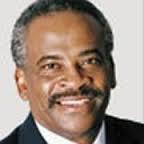
Ten years ago, as we prepared to celebrate the 40th anniversary of the march, the editors of what was then Black Issues in Higher Education published a collection of writing by authors assessing how much progress has been made in the arena of voting rights and justice. The magazine is now Diverse: Issues In Higher Education, published by our parent company, Cox, Matthews & Associates. As we prepare for the 50th anniversary, once again we remind you of this important book:
The Unfinished Agenda of the Selma-Montgomery Voting Rights March, edited by William E. Cox, $13.24 (List Price: $24.95), Wiley, February 2005, ISBN: 9780471710370, pp. 240.
The editors wrote:
In the turbulent years of the Civil Rights Movement, no single event had greater impact than the 1965 march from Selma to Montgomery, Alabama. Earlier that year, Dr. Martin Luther King had launched a major campaign to register black voters in Alabama. What began as a grassroots protest against discrimination, delay, and intimidation at the polls unleashed a shock wave of violent backlash and bloodshed. In the face of armed opposition, thousands more joined the Selma protesters. By the time they reached the state capital on March 25, more that 25,000 marchers—both black and white—had peacefully made their voices heard in Congress. Out of this unprecedented show of unity and determination emerged the most significant civil rights landmark of our time: the Voting Rights Act of 1965.
As the fortieth anniversary of the extraordinary achievement draws near, it is clear that the voting rights struggle continues for many Americans—particularly people of color. Despite the sacrifices made by so many men, women, and children in Selma, this generation questions whether its votes matter. Do dramatic gains in numbers of women and blacks among elected officials masks growing underrepresentation? What electoral strategies are necessary now to reduce the inequality of millions?
The editors of Black Issues in Higher Education asked leading African American scholars and commentators to search for answers. The Unfinished Agenda of the Selma-Montgomery Voting Rights March is a thought-provoking collection of essays that takes an incisive look at the events of 1965, the milestones reached, and the unresolved issues and challenges that remain today.
This collection of narrative excerpts and essays has a foreword by Tavis Smiley, who said, “This book is an excellent argument for ceaseless vigilance and activism. As Dr. King said in his letter from a Selma jail, one of the most difficult lessons of the movement was that ‘you cannot depend on American institutions to function without pressure; real change depends on continued creative action.’”
Contributors include Joseph E. Lowery, John Lewis, Clayborne Carson, Ronald Walters, Andrew Young, Lani Guinier and Manning Marable. The book also includes chapters that examine the impact of the unfinished agenda for Asian American, Indian and Latino voters, and it has a timeline of civil rights history.
As we begin Black History Month, Diversebooks.net also would like to remind you that it offers more than 150 titles that deal with the African-American past from colonial times through the 1960s and 1970s up to more-contemporary times.
Here are some other selections for Black History Month:
Freedom Walk: Mississippi or Bust, by Mary Stanton, $31, (List Price: $35) University of Mississippi Press, January 2003, ISBN: 9781578065059, pp. 272.
In 1963, Bill Moore, a white mail carrier, made a solitary march with the intention of walking from Chattanooga, Tennessee, to Jackson, Mississippi. He planned to hand deliver his plea for racial tolerance to Gov. Ross Barnett. He was heckled and jeered at along the way and finally shot dead near Attalla, Alabama, making him one of the earliest martyrs of the Civil Rights Movement. A Ku Klux Klansman was charged but acquitted of the murder. Volunteers made repeated unsuccessful attempts to complete the march. The author pieced together the story, drawing on a journal Moore kept, as well as interviews and news reports of the time.
http://diversebooks.net/freedom-walk-mississippi-or-bust.html
The Pursuit of a Dream, by Janet Sharp Hermann, $22.50, (List price: $25), University of Mississippi Press, April 1981, ISBN: 1578061296, pp. 290.
This book tells the story of freedmen’s success in creating a utopia on a Mississippi plantation where they were once held in slavery. The former slaveholder Joseph Davis, brother of Jefferson Davis, the president of the Confederacy, had failed at his attempt to organize a cooperative community. The Yankees had limited success in setting up such a community there during the Civil War. After Emancipation, Benjamin Montgomery, an educated freedman, bought the land that became known as Davis Bend and organized a thriving community in 1866.
http://diversebooks.net/the-pursuit-of-a-dream.html
Reminiscences of an Active Life: The Autobiography of John Roy Lynch, by John Roy Lynch, $31.50 (List price: $35) University of Mississippi Press, October 2008, ISBN: 9781604731149, pp. 566.
The first African American from Mississippi elected to the United States Congress wrote this autobiography when he was 90. This edition is edited by the historian John Hope Franklin, who wrote the introduction. John Roy Lynch (1847-1939) was born into slavery on a Louisiana plantation and began his political career in 1869 with his appointment as justice of the peace. During Reconstruction, he was elected to the Mississippi legislature, served as Speaker of the House and was elected to Congress at age 25. He gives an inside account of the politics of Reconstruction and his role in it.
http://diversebooks.net/reminiscences-of-an-active-life-the-autobiography-of-john-roy-lynch.html
Through partnerships with an array of publishers, DiverseBooks.net can address the reader’s professional needs and personal interests with titles on history, diversity, education and a vast number of other subjects.
The DiverseBooks.net home page will link you to academic and scholarly titles in more than 20 categories, books offered at a substantial savings.
Celebrate Black History Month with www.DiverseBooks.net. Want to know more about DiverseBooks.net or the possibility of partnering with us? Email us at diversebooks@diverseeducation.com or call 703-385-2980.


















